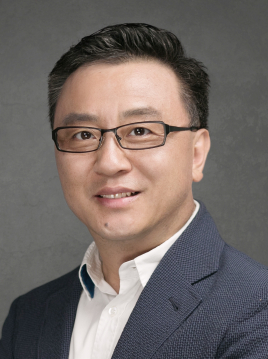张亚勤哥大毕业演讲:以技术创新人文精神引领未知时代
导读:近日,人工智能和数字视频的世界级科学家和企业家,美国艺术与科学院院士、百度前总裁、清华大学智能科学讲席教授张亚勤博士,在哥伦比亚大学工学院的毕业典礼上发表了主题演讲。
5月20日消息,近日,人工智能和数字视频的世界级科学家和企业家,美国艺术与科学院院士、百度前总裁、清华大学智能科学讲席教授张亚勤博士,在哥伦比亚大学工学院的毕业典礼上发表了主题演讲。

张亚勤
张亚勤表示,面对全球疫情,技术成为最关键的变革力量,高速网络、软件和人工智能等基础技术塑造我们生活、学习、工作和娱乐方式。
张亚勤称:“随着世界进入一个充满挑战和不确定性的新阶段,年轻工程师迎来了响应历史使命的决定性时刻,不仅要以技术创新,还要以同理心、勇气和人文主义精神来迎接使命。”
哥伦比亚大学工程学院院长玛丽·博伊斯(Mary C. Boyce)表示:“我们很高兴能请到张亚勤博士(Dr. Ya-Qin Zhang)给我们的毕业生做演讲,以此来纪念这一重要的里程碑。”
以下为张亚勤在2020年哥伦比亚大学工程学院毕业典礼上的致辞全文:
尊敬的Bollinger校长, Boyce院长,家长们,同学们,大家好。
我很荣幸能够在这个非常时期,以特殊的形式出席这次特别的典礼。首先,恭喜2020届毕业生,对你们取得的杰出成就表示衷心祝贺。你们做到了!
我也是一名哥伦比亚大学的学生家长。我的儿子现在哥大工学院二年级学生,我女儿是哥大商学院2020届的毕业生。我想与所有家长分享这份难以言表的喜悦和骄傲,我们都做到了!
这无疑是我们有生记忆以来最具挑战性和不确定性的一个时期。
我们不仅看到了科技创新的极速进步和第四次工业革命的巨大力量,人工智能、纳米技术、量子计算机和5G通信等等技术不断突破。
我们还目睹了百年一遇的流行疾病在全球范围内带来的突发性破坏和灾难性影响,对我们的社会基础、经济结构和生活方式带来挑战。
对于那些学习过热力学第二定律的人来说,“熵”这个术语一定不陌生,它表示动态系统中的混沌程度(Chaos)。信息理论的创始者Claud Shannon将这一概念扩展到了信息的不确定性和随机性。可以说,2020届毕业生是被赋予“熵”值最高的一届。未来的不可预测和混沌程度都是前所未有的。对你们如此,对我们所有人也是如此。
与你们的交流令我回想起我的学生时代和年轻时的工程师工作经历。1990年毕业后,我的第一份工作是开发算法,压缩图像和视频,完成远程传输, 对国际标准MPEG和H.26x做出一点小贡献: MPEG和H.26x也是如今 [Netflix](http://stock.finance.sina.com.cn/usstock/quotes/NFLX.html) 、YouTube、Skype和 [Zoom](http://stock.finance.sina.com.cn/usstock/quotes/ZM.html) 等流行视频应用程序的重要基础。在过去的三十年里,我有幸一直在激动人心的创新技术中徜徉, HDTV、自动驾驶、人工智能和云计算等等。在这一路走来,收获的不仅是无穷的乐趣,也有超凡的艰辛。我想跟同学们分享我的三个体会:
1)在数据爆炸和不断变化的世界中,成为具备强适应能力的学习者。在瞬息万变的技术行业中,五年前学到的知识大多已无用处。你们在哥伦比亚大学中学习到最有价值的是学习新知的能力,是从繁杂噪音中分别信号的能力,是从众多数据中提取“熵”的能力。我有一个行之有效的习惯,每天早上花10分钟,找出对我而言最新的发现或最重要的3件事情,当天来学习。
2) 要拥有独特的观点和视角。当你们进入现实世界,会自然而然的开始被“打磨”,去遵循已有的趋势,融入他人。我恳请你们保持自己的尖锐、棱角和与众不同。当我与年轻工程师面聊时,我期待他们的观点、他们的“熵”、他们鲜活的想法,这些远比圆滑、打磨、“正确”要重要得多。
3) 无论做什么事情,要秉承道德和人性。两千多年前,伟大的希腊思想家苏格拉底将道德作为追求真理的灵魂。大约同一时期,伟大的中国哲学家孔子把人性的“仁义”作为社会结构的基础。在截然不同的文化下,两位伟大思想家所见略同,并非巧合。今天,当我们面临更多选择、迷茫和诱惑时,这一点就变得更加重要。技术是中立的,但创新者是有使命的。技术是工具,但技术人员是为人类服务的。院长Mary Boyce对哥伦比亚工学院提出的愿景“技术以人为本”是工程学的核心,也是我们工程师和技术人员的宗旨。
年轻的朋友们,对你们而言,这是一个决定性的时刻,请尽情的用你们的才华、激情和创新,更用你们的同理心,勇气和人性,去展现,去闪耀,响应使命的召唤!
再次恭喜你们,2020届毕业生!
*张亚勤哥伦比亚大学毕业典礼演讲英文原文:*
Leading in times of uncertainty
President Bollinger, Dean Boyce, Parents and Students:
I am honored to be here at this very special occasion, at a very special time, in the most special form。 First, a big congratulation to the class of 2020 for your remarkable accomplishments。 You made it!
I am also a proud parent of Columbia。 My son is a rising junior at the engineering school, and my daughter is also a class 2020 for the business school。 I share the immense joy and incredible pride with all the parents, we all made it too!
This is undoubtedly the most challenging and uncertain time in our living memory。
We see the staggering pace of innovation and the transformative power of the fourth industrial revolution, with technology breakthroughs such as artificial intelligence, nano-technology, quantum computing, and 5G advanced communications。
We also see the sudden disruption and catastrophic impact of the once-in-a-century pandemic at a global scale that challenges the very foundation of our social fabric, economic structure, and life style。
For those of you who have learned the 2nd law of thermodynamics, you know the term “entropy”, which represents degree of chaos in a dynamic system。 Claud Shannon, the founding father of information theory, extended this notion to measure information uncertainty and randomness。 It’s fair to say that the Class of 2020 is the one that is “given” the highest entropy。 The level of unpredictability and chaos is unprecedented for you — and for all of us。
Talking with you reminds me of my early years as a student and young engineer。 My first job after graduation in 1990 was developing algorithms to compress imagery and video for remote transmission, essentially to extract the maximum entropy。 The work eventually contributed in a small way to a set of international standards known as MPEG and H.26x, the base for today’s popular video applications used in Netflix, YouTube, Skype and Zoom。 Over last three decades, I had the distinct opportunity to work on some of the most exciting technologies such as HDTV, autonomous driving, AI, and cloud computing。 I have had the wildest ride with not only a great deal of fun, but also extraordinary hardship along the way。 Let me share with you three of my personal learnings:
1) Be an adaptive learner in the world of data explosion and constant change。 In today’s fast changing technology industry, most of what you learned five years ago is irrelevant。 The most valuable skill you’ve gained at Columbia is the ability to learn new things, to discern the signal from the noise, and to extract entropy from the ocean of data。 One routine I find particularly helpful is to commit just 10 minutes each morning and prioritize 3 things – anything new and important to me – to learn that day。
2) Have a unique point of view and perspective。 When you get into the real world, there is a natural tendency to become “polished”, to follow existing trends, and to blend in with the rest。
I ASK you to maintain your sharpness, your edge, and your differences。 When I interview people, particularly young engineers, I look for their point of view, their entropy, and their flash of ideas, which to me is far more important than being smooth, polished or “correct”。
3) Hold Ethics and humanity at the heart of what you do。 Over 2000 years ago, the great Greek thinker Sock-ruh-tease put ethics as the soul for the pursuit of truth。 Around the same time, the great Chinese philosopher Confucius placed “Renyi”, which essentially means humanity, as the foundation for social structure。 It is no coincidence that two of the greatest minds from vastly different cultures had the same idea。 This has become even more critical today as we all face more choices, confusion, and temptations。 Technology is neutral, but innovators have purpose。 Engineering is a tool, but engineers serve humanity。 “Engineering for Humanity”, the vision set by Dean Mary Boyce for Columbia engineering is the very core of engineering and what engineers are all about。
My young friends, this is the defining moment for you, for you to rise, to shine and answer the historic call of duty, with not only your talent, spark and innovations, but also compassion, courage and humanity。
Congratulations again, Class 2020 !